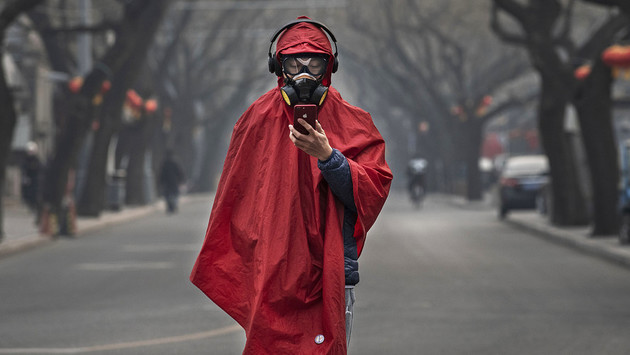In a time when unity on an international level is necessary to combat a new viral disease, people are instead turning against those they believe to be infected. The recent Wuhan coronavirus outbreak has become an excuse for xenophobia against people of Asian descent around the world. KSU Sentinel reports in its article Coronavirus panic disguises racism, xenophobia that a tragedy that should have been met with sympathy and kindness was instead met with intolerance and ignorance.
Be Well Cal, an Instagram account run by the University of California Berkeley’s Tang Center, posted that common reactions to the spread of information on coronavirus can include a fear of individuals of Asian descent. The post has since been removed, according to NBC News.
Students in universities around the country have also reported xenophobic responses to coronavirus, such as saying the virus resulted from Chinese food culture in a tweet or making xenophobic memes and posting them to Reddit. The pervasiveness of posts like these on the internet shows how widespread ignorance has become.
“I haven’t felt fear related to coronavirus,” sophomore English major Aaron O’Connor said. “Just because [my classmates are] Asian doesn’t mean they’re from where the sickness broke out, nor does it mean they’re a host for the virus.”
Incidents of anti-Chinese racism and attacks on Chinese culture have also been reported in countries including South Korea, Malaysia, the U.K. and Canada with businesses putting signs in windows that say, “No Chinese,” according to MarketWatch.
This blatant xenophobia has sparked responses from both Maylasian prime minister Mahathir Mohamed and President Rodrigo Duterte of the Philippines, according to MarketWatch. “The [Malaysian government] will take action on those spreading fake news to instill fear among Malaysians and incite hatred among the races,” Mohamed said.
Five people have been arrested in Malaysia for spreading fake news about coronavirus online, according to MarketWatch.
Mohamed’s response is one other global leaders should follow — national governments should lead by example in the effort to prevent bigotry and xenophobia worldwide.
Similarly, Duterte has assured his country that there is no reason for panic. This came in response to Adamson University in Manila asking Chinese students to observe a precautionary self-quarantine for 14 days, according to Reuters.
“In the face of adversity, the best option is always for everyone to put their heads together to try and find the best option as quickly as possible,” O’Connor said. “All this finger-pointing isn’t going to help anyone.”
The xenophobic, fearful responses have even caused a man to die in the Chinatown district of Sydney, Australia. Bystanders refused to give CPR out of fear of contracting coronavirus, according to Metro.
In the Atlanta Metropolitan Area, 4.2 percent of the population is of Asian descent, which means there are over 20,000 people of Asian descent in the area, according to the United States Census Bureau.
Similarly, Kennesaw State’s student population is 4.7 percent Asian, which means that of the 38,000 students, 1,786 of them could face racism in response to misinformation on the outbreak, according to KSU News. It is important to remember that members of even the KSU community could fall victim to the ignorance of others.
In the wake of an epidemic, it is time for people to put aside their own uninformed notions of how diseases spread. Instead of people insulting Asian teenagers and expressing fears over contacting Asian doctors and businesses banning the Chinese in Korea, people need to follow the examples set forth by Mohamed and Duterte.






